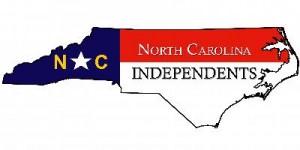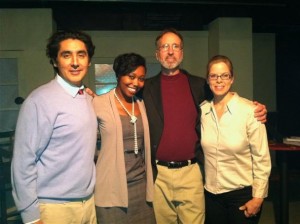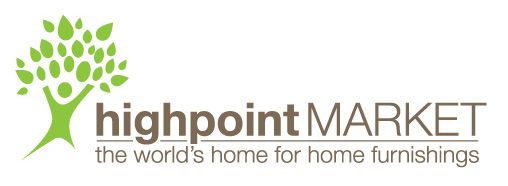Last week, Frank Stasio of WUNC’s The State of Things was in Downtown Greensboro at the Triad Stage Upstage Cabaret to discuss Independent voters in North Carolina. His guests were Omar Ali, associate professor of African-American Studies and History at UNC-Greensboro; Donna Moser, co-founder of North Carolina Independents; ncindependents.org and Brittany Rodman, a registered independent voter.
 The introduction from the ncindependents.org website explains that “North Carolina Independents is a non-partisan association of unaffiliated voters who are challenging party-control of the political process. We’re helping to launch a national campaign to have Congress hold hearings on the second-class status of independent (i.e. unaffiliated) voters. While 40% of Americans self-identify as independent the entire political infrastructure has been built around the interests of the parties. Where is our voice in the mix? Where is our representation? Some 1.5 million North Carolinian’s are registered as “unaffiliated.” Are you one of them?”
The introduction from the ncindependents.org website explains that “North Carolina Independents is a non-partisan association of unaffiliated voters who are challenging party-control of the political process. We’re helping to launch a national campaign to have Congress hold hearings on the second-class status of independent (i.e. unaffiliated) voters. While 40% of Americans self-identify as independent the entire political infrastructure has been built around the interests of the parties. Where is our voice in the mix? Where is our representation? Some 1.5 million North Carolinian’s are registered as “unaffiliated.” Are you one of them?”
From a recent USA Today article it was interesting to learn that “More than 2.5 million voters have left the Democratic and Republican parties since the 2008 elections, while the number of independent voters continues to grow.” But the big question is why?
What I have learned during my research to answer that question is that a growing number of Americans are fed up with the playground politics of our two party system. My husband and I had a lengthy discussion and agreed that politics in the United States has become more focused on who has control (Republicans/Democrats and corporations that feed them both) vs. who is doing what is necessary to effectively run our country and listen to and do what is right for the voters they represent.
As it stands now – an Independent Candidate would have to gather 85,000 signatures to qualify for the ballot, where as a Republican or Democratic hopeful needs 0. Yup, that’s right. ZERO. I was shocked to learn that an Independent candidate would have to collect a signature from 1 out of every 73 registered voters in NC.
FREEtheVOTENC explains that The Electoral Freedom Act hopes to restore the rights of voters because “Our state’s ballot access laws are intended to hinder competition and artificially assist the two major parties by placing unreasonable and unnecessary restrictions on any competition through restrictive signature requirements unparalleled in most other states.”
As Omar Ali rightly stated during his interview “Most Americans don’t want parties but policies that work.” That sentiment was echoed in fellow guest and registered Independent voter Brittany Rodman, when asked how she came to consider herself an Independent.
Brittany’s decision “took years to come to.” She went on to share that “by default I was born a Democrat by being a black woman from a working class family. I began to see this disconnect with all races and economic classes across America. . . . People are not satisfied with congress and we don’t see how we fit in or how our needs are met as a community.”
Brittany is not alone. With congress’ approval rating at an all time low, voters across America are not falling for the sensationalized mud slinging that an election year brings but instead are looking more closely for leaders who are less concerned about what party they are in and more concerned about meeting the needs of families hit hard by the greed and far reaching corruption of Wall Street.
When asked why not pick one of the two existing political parties and fight for reform, Brittany’s answer best reflected a growing sentiment amongst voters of all ages . . . “I’ve never been a fan of picking the lesser of two evils.”
—
Learn more about what it means to be an unaffiliated independent voter.
Find out who represents you in Raleigh and get involved on a local level.
Interested in who is lining your representatives pockets? Take some time to review the 112th Congress detailed money profiles, you might be surprised to see who the top national donors are that are funding our government representatives.
—
How do you see our current political system changing for the better?
What are your thoughts on Corporate Personhood and the impact it has had on our political system?
Are partisan politics dividing America?

 Follow
Follow

